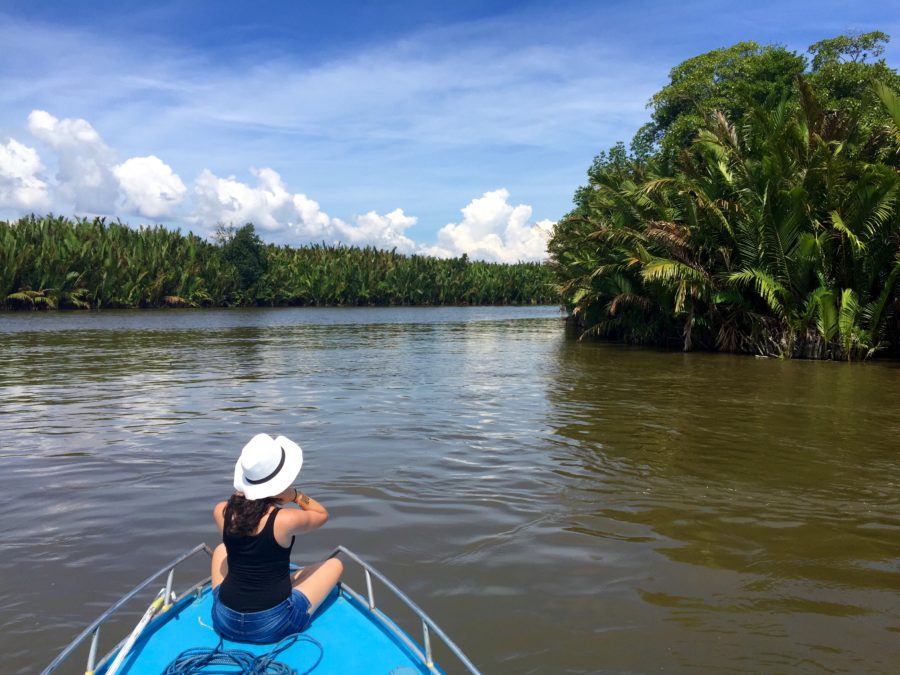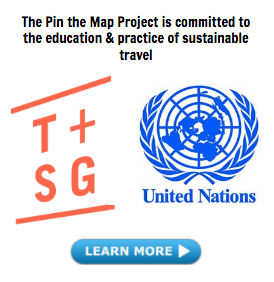
Becoming a Travel Editor was always a dream of mine since I graduated journalism school a few years ago; so when the time came to hold my own newly minted “Travel Editor” business card, I was practically cartwheeling down the streets of New York to my office.
Being a Travel Editor these last few months has given me a new perspective. Having normally been on the tail end of pitching editors, I now have the unique opportunity to be on the receiving end of countless emails, story ideas and article pitches from writers around the world who want to contribute to Culture Trip. In my recent post, I shared tips for pitching travel editors; here I share what to avoid when you pitch a story idea.
1. Let’s first talk about solo traveling…
I have written countless posts on The Pin the Map Project declaring my love for solo traveling. I am a firm believer that solo travel is an immensely personal, transformative experience and so when it came time to pitching editors about my trips, I figured that my solo traveling was enough. I now realize that it’s not and it isn’t.
When I get pitches from writers saying they’ve solo traveled, my first thought is: “…and?” I get countless similar pitches from solo traveling bloggers and writers who think they have a heck of a story by virtue of just traveling alone. When you pitch an editor about solo traveling, try to find a unique angle. Perhaps you’re solo traveling in a part of the world that is dangerous? Maybe you’re solo traveling despite being married with kids? Whatever the angle, just know that solo traveling isn’t enough anymore for editors.
2. Please, please, please don’t send listicles
More than half the pitch emails I get go something like this:
“Hi, my name is X and I’m a blogger currently traveling in Italy. I’d love to contribute to Culture Trip about the 10 best bars to see in Venice! I was just there and can offer photography and insider tips. Let me know if you’re interested! Thanks!”
This pitch email tells me one thing: that this person did not read our website because if they had they would see we are swimming (no, drowning!) in listicle content for Italy. More often than not, the editors you pitch will have more than enough listicle content from either staff writers or a designated pool of contributors.
Don’t pitch editors with your “top 10” ideas for bars, cafes or hotels UNLESS you’ve checked their website and see they are missing a listicle for a particular destination. For example, if you’re headed to Bolivia and see that Culture Trip is lacking listicle content for what to do, see and eat there, then that is a scenario where listicle content might be accepted. Bottom line, make sure to check a publication before you pitch anything.
3. What to consider when asking for freebies

Now, let me break this down by scenario:
If there’s a press trip you want to take…
If you’re keen on taking a press trip, sometimes you can simply do so by virtue of having your own blog or strong social media following. Now, let’s say you don’t have a blog or following but still want to take a press trip, what’s your options? More often than not, you can take a press trip as a freelance journalist for a publication but will require a letter from an editor proving to the press trip organizers that you are in fact on assignment.
If you need a letter of assignment from an editor…
Before you do anything, look at the press trip you’re keen on taking and look at the publication you’re keen on representing. Are there any story angles you can get out of the trip that might be a good fit for the website? Are there any unique angles, unfolding situations or controversial topics that might come out of the trip that you can do as a feature for the publication? Check what the publication has already published on that destination and see if you can fill any content gaps.
Once you have an idea, then approach an editor with your pitch. Explain your story idea, the press trip opportunity and then finally that you’ll need a letter of assignment. Most press trips won’t come at a cost to the publication or you. A key thing to note is to never ever misrepresent yourself for a press trip, which is to say don’t say you’re a journalist for X publication if the editor hasn’t approved your story.
If you don’t have a press trip opportunity but still want free travel, hotel stays, etc…
This is a tall order, my friend. Here’s why:
1. Most publications have writers on staff that they send on trips, etc. as representatives of the publication, so it’s unlikely that they would turn towards a freelancer for these sort of opportunities.
2. Most publications have a locked budget for editorial expenses, so asking for a site to pay for your travel might be a hard sell and ultimately take away from the larger editorial budget for on-staff editors and writers.
3. (and this is the hardest obstacle to overcome) you will need to prove to a publication why the investment in sending you somewhere as opposed to one of their own on-staff editors or writers makes sense. This isn’t impossible because if you’re already traveling in the Middle East, it might make more financial sense for a publication to pay you to cover a certain story as opposed to sending a staff writer or having an editor take time away from their workload. In the end, it all comes down to how you approach a publisher.
4. Be careful of writing like a blogger.
Now, this will ultimately vary from publication to publication. If you’re pitching say, Buzzfeed, then they might be more keen on having blogging-style writing vs. a Roads & Kingdoms, which is intent on in-depth journalism reportage.
My advice here is to know the publication you’re pitching. More often than not, blogging stories (which is to say, personal narratives) will need to be accompanied by some sort of research. A good feature story will have more than just your own personal story; it will have quotes from experts and show the writer has done their research on the subject.
This style of writing (which is admittedly more time consuming) is different from blogging where most quick posts will simply feature you, the writer as the main voice and expert in the post. So, while you can definitely pitch a story about your experiences in Bali, make sure to put on your journalist hat and look for additional experts to weigh in on the topic of your story.
Are there any other topics you are keen on me covering? Are there questions you’ve always wanted to ask a travel editor? Leave your questions below and it may be turned into a new post!



This was very helpful, Nikki! Thank you for sharing 🙂
— LisaLDN.com (soon to be FjordsAndBeaches.com)
Glad you found it helpful! If there are any other topics about travel editing, writing or pitching you would like to see, let me know!
Notes taken! Lesson learnt! Thank you!